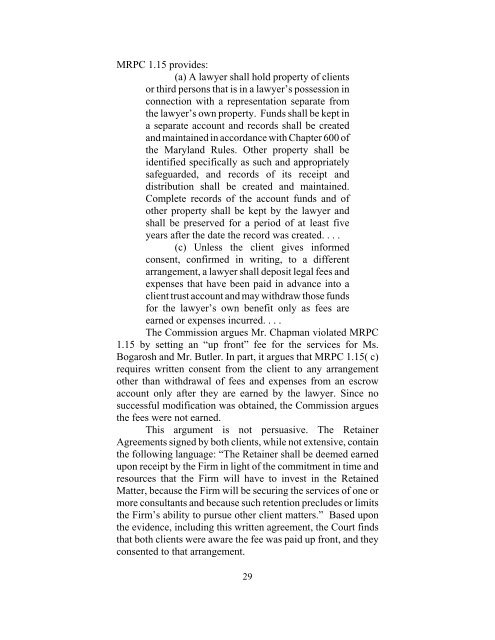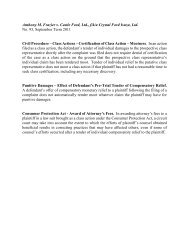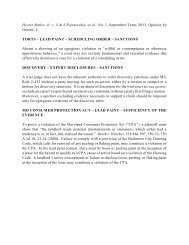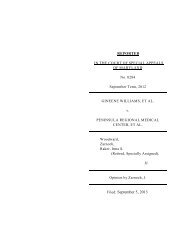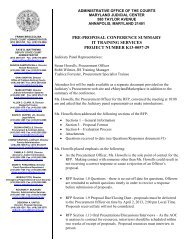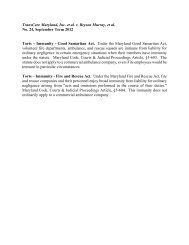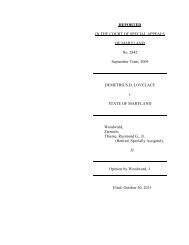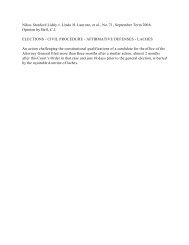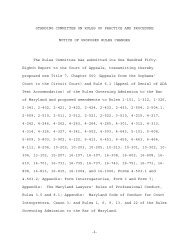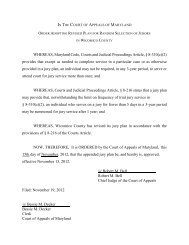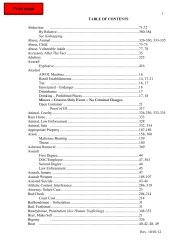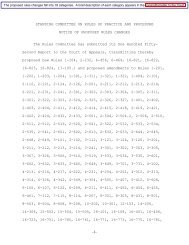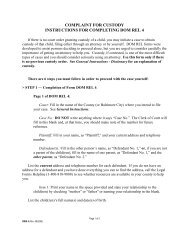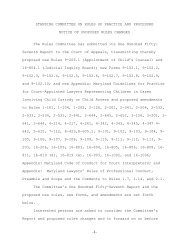44ag/11 - Maryland Courts
44ag/11 - Maryland Courts
44ag/11 - Maryland Courts
Create successful ePaper yourself
Turn your PDF publications into a flip-book with our unique Google optimized e-Paper software.
MRPC 1.15 provides:<br />
(a) A lawyer shall hold property of clients<br />
or third persons that is in a lawyer’s possession in<br />
connection with a representation separate from<br />
the lawyer’s own property. Funds shall be kept in<br />
a separate account and records shall be created<br />
and maintained in accordance with Chapter 600 of<br />
the <strong>Maryland</strong> Rules. Other property shall be<br />
identified specifically as such and appropriately<br />
safeguarded, and records of its receipt and<br />
distribution shall be created and maintained.<br />
Complete records of the account funds and of<br />
other property shall be kept by the lawyer and<br />
shall be preserved for a period of at least five<br />
years after the date the record was created. . . .<br />
(c) Unless the client gives informed<br />
consent, confirmed in writing, to a different<br />
arrangement, a lawyer shall deposit legal fees and<br />
expenses that have been paid in advance into a<br />
client trust account and may withdraw those funds<br />
for the lawyer’s own benefit only as fees are<br />
earned or expenses incurred. . . .<br />
The Commission argues Mr. Chapman violated MRPC<br />
1.15 by setting an “up front” fee for the services for Ms.<br />
Bogarosh and Mr. Butler. In part, it argues that MRPC 1.15( c)<br />
requires written consent from the client to any arrangement<br />
other than withdrawal of fees and expenses from an escrow<br />
account only after they are earned by the lawyer. Since no<br />
successful modification was obtained, the Commission argues<br />
the fees were not earned.<br />
This argument is not persuasive. The Retainer<br />
Agreements signed by both clients, while not extensive, contain<br />
the following language: “The Retainer shall be deemed earned<br />
upon receipt by the Firm in light of the commitment in time and<br />
resources that the Firm will have to invest in the Retained<br />
Matter, because the Firm will be securing the services of one or<br />
more consultants and because such retention precludes or limits<br />
the Firm’s ability to pursue other client matters.” Based upon<br />
the evidence, including this written agreement, the Court finds<br />
that both clients were aware the fee was paid up front, and they<br />
consented to that arrangement.<br />
29


